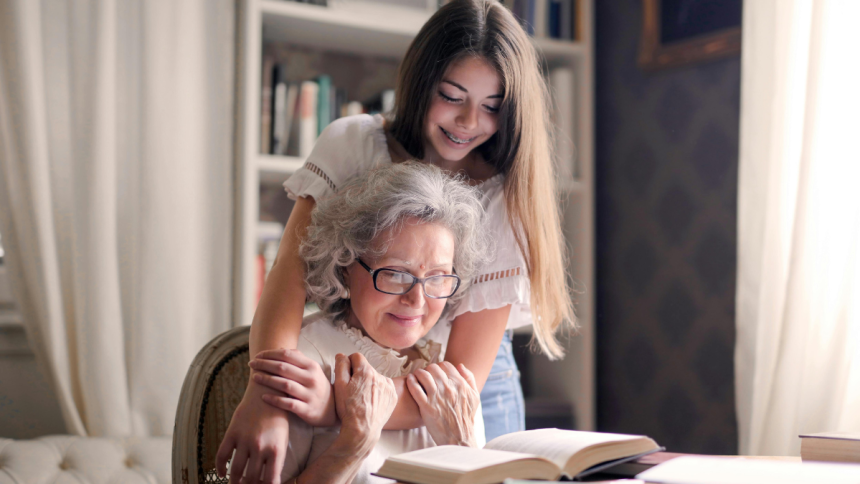Getting older is inevitable, and in today’s world it’s a bit challenging also. Many factors have influenced the higher cost of elder care and nursing home expenses. Furthermore, the concept of the family has changed drastically, where children and close relatives no longer live together, but rather in separate houses or even separate states.
All of this brought forth a perspective: how about getting financially reimbursed when taking care of your elder family members? Yes, there is a special Medicare program that enables this, and this article will focus on the program, how much do family members get paid for caregiving, and what are the challenges and benefits this unconventional job brings.
Medicaid Waivers and HCBS Programs
Medicaid is the main avenue for getting paid as a family caregiver in the U.S. Specifically, many states offer Home and Community-Based Services (HCBS) programs or “Medicaid waiver” programs that are designed to help seniors and people with disabilities receive care at home instead of in a nursing facility.
Some of these programs allow Medicaid recipients to hire a family member as a personal care aide. This is often referred to as consumer-directed care (the care recipient directs where the Medicaid funds go, which can include paying family caregivers).
The exact name and rules of these programs differ by state – for example, one state might call it a “Cash & Counseling” program, another might have a family caregiver payment through a specific waiver.
In other words, getting paid through Medicaid is possible, but how much you can get paid, for how many hours, and which relatives qualify (sometimes spouses are excluded, for instance) all depend on where you live.
Average Pay Rates in Top States
To give a rough idea of the financial side, here are the average hourly pay rates for family caregivers in some of the largest states (by caregiving population), as of September 2024
- California: ~$15.54 per hour
- Texas: ~$14.82 per hour
- New York: ~$16.44 per hour
- Florida: ~$11.13 per hour
- Illinois: ~$13.58 per hour
These rates are relatively modest – often around or just above the local minimum wage. They won’t fully replace a full-time salary, but they can surely help ease the financial burden on families.
The Challenges of Caregiving
Caring for an elderly loved one can be as challenging as it is noble. Both family (informal) caregivers and professional care workers face intense pressures. Some of the key challenges they encounter include:
- Burnout and Emotional Strain: Many family caregivers are on call 24/7, leading to sleepless nights, chronic stress, and even health problems of their own. The emotional toll of watching a loved one’s decline – and feeling responsible for their well-being – can weigh heavily. Across 25 OECD countries, roughly one in eight adults over 50 is an informal caregiver, and many struggle with deteriorating mental health due to these intense duties.
- Financial Strain: Family members often cut back on work or quit jobs to provide care, sacrificing income and savings while also paying for medications, home safety modifications, or respite help. Even professional caregivers are frequently underpaid for the vital work they do.
- Lack of Training: Most family caregivers aren’t trained medical professionals, yet they perform complex health tasks with little guidance – causing anxiety about making a mistake that could harm their loved one. Professional caregivers, too, may face minimal training or short-staffing, leaving them overwhelmed by many patients’ needs.
- Limited Support Networks: Caregiving can be very isolating, as exhausted caregivers have little time to socialize and may find friends drifting away. Without a support network or respite services, many have no one to turn to for help or a much-needed break. Support groups and programs exist, but they can be hard to access – leaving caregivers feeling they must do it all alone.

The Rewards of Caregiving
Yet amid these hardships, caregivers often discover profound rewards in their role. Tending to our elders can be a deeply meaningful experience that enriches one’s life in unexpected ways. Some rewarding aspects include:
- Emotional Fulfilment: Caring for someone who once cared for you brings a special sense of love and satisfaction. Caregivers cherish the quiet moments – sharing a cup of tea, hearing an old favourite song, or seeing a parent’s smile. Knowing you’ve made your loved one’s day safer or brighter can provide a deep fulfilment that few other experiences offer.
- Intergenerational Bonding: Caregiving can strengthen bonds between young and old. A grandchild helping a grandparent learns patience and hears stories of the family’s past, creating lasting memories. For elders, having family involved is comforting; for caregivers, it’s a chance to grow closer and appreciate their loved one on a deeper level.
- Sense of Purpose: Looking after an aging loved one can instill a powerful sense of purpose. Each day has meaning because your efforts directly improve someone’s quality of life. This responsibility – though heavy at times – gives caregivers a reason to get up in the morning and keep going. Despite the hardships, it’s a labour of love that can leave you feeling proud and truly needed.
- Community Respect: In many cultures, caring for elders is highly respected because it exemplifies sacrifice and compassion. Whether it’s receiving a neighbour’s praise or simply feeling proud of upholding a family duty, there is honour in the role. By caring for an elder, you set an example that reinforces core values like empathy and responsibility. Often, caregivers also become more connected to their community, finding support and solidarity with others on the same journey.
Caring for our elders is more than an obligation – it’s a profound honour that upholds their dignity and repays a lifetime of love. In how we support our oldest generation, we reveal the true measure of our compassion as a society.
Lynn Martelli is an editor at Readability. She received her MFA in Creative Writing from Antioch University and has worked as an editor for over 10 years. Lynn has edited a wide variety of books, including fiction, non-fiction, memoirs, and more. In her free time, Lynn enjoys reading, writing, and spending time with her family and friends.















